For most people, moving from New York City to a three-block town in the New Mexican desert might seem like a step toward relaxation. But John Dear, a Jesuit priest, peace activist, author, and lecturer, is not most people.
As soon as Dear arrived he started challenging the locals with his message of nonviolence. He developed such a reputation that before the nearby National Guard unit left for Iraq they decided to drop by Dear's home.
"It was horrifying," he remembers. "I was wakened at 6 a.m. by 75 soldiers at the front door of the rectory shouting the battalion's slogan, ‘One bullet, one kill.' But since they were out of sync, it sounded like ‘Kill, kill, kill.'"
Dear decided to intervene. He went out and said, "Excuse me. In the name of God, I order all of you to quit the military, not to go to Iraq, not to kill anyone, not to get killed, and to follow the nonviolent Jesus and start loving your enemies because God doesn't bless war. Now go home, and God bless you all."
Telling that story during our interview, Dear said with a laugh, "I never have to go to a demonstration again. From now on the soldiers come to me."
Formerly the executive director of the international peace organization Fellowship of Reconciliation, Dear has been arrested more than 75 times and jailed for nearly a year for committing acts of civil disobedience. He is author and editor of 20 books, most recently The Questions of Jesus (Doubleday).
As a pacifist, what do you suggest we do with the Hitlers and bin Ladens of the world? Aren't we required to confront that kind of evil?
What do we do with them? We're Christians, so we love them and we nonviolently resist the evil they do. Nonviolence isn't passive. It's active confrontation of evil through the means of love and truth. It's persistently giving your life for peace and justice but refusing to resort to violence. It's saying that there's no cause worthy of taking a single human life.
And nonviolence isn't impractical or idealistic. In fact, it's the only practical, realistic option we have. Through nonviolence Gandhi got the British Empire to leave India and Dr. King brought down segregation in the South.
Nonviolence did work against Hitler in several cases: In Bulgaria crowds sat on train tracks to prevent the Nazis from shipping Jews out of the country; Norwegian teachers held a successful strike against being forced to teach Nazi ideology; in Denmark the king led opposition to the Nazis by saying he would be the first to wear a yellow star if it were required of Danish Jews.
Do you think that violence can ever be justified, that it can ever be a part of God's plan?
No. I think that's the myth that we've been taught. It's a lie. And I don't know if it's original sin or an addiction, or if it's just because we don't believe in God. But the scandal is that God is perfectly loving and wants everyone to be living in this realm of peace and love, and we just can't believe it.
The last words of Jesus to the church before he's taken away and executed are, "Put down the sword." If there ever was a moment when violence was justified, it was that moment, when we had to protect our guy. Peter was right to take out a sword and to try to start killing to protect the Holy One, but Jesus forbids it, and that's that. On the cross Jesus practices perfect nonviolence. And then God raises him up and says, "OK, now you all follow."
"Put down the sword" is a command, but your latest book looks at the questions Jesus asks.
What made you focus on these?
About 15 years ago a friend of mine said in passing that Jesus is the one with all the questions. I was just floored by that. I thought Jesus was the guy with all the answers. But he does have all the questions.
One rainy day years later I sat down with the Bible and wrote out all of Jesus' questions in all of the gospels. I didn't realize there were so many-more than 300. And most of them are just left hanging.
Of course it's typical of spiritual leaders, whether a rabbi or a Zen master, to ask very difficult questions, but for me it was a whole new way of looking at Jesus.
Also, I love that line in Letters to a Young Poet where Rainer Maria Rilke says we shouldn't try to answer the questions; we should live the questions now, and then one day perhaps we'll live our way into the answer. I thought, that's what I want to do with these questions of Jesus.
What are some of Jesus' most challenging questions for our culture today?
They're all challenging. He starts out with gentle ones like "What are you looking for?" and "Why are you looking for me?" Then he builds up to very tough ones: "Where is your faith?" "Why do you harbor evil thoughts?" "Why are you afraid?" and "Why are you trying to kill me?"
Some of his questions get at the root of our humanity, like "Do you want to be well?" Relating to sexism, I love this one: "Do you see this woman?" And "What is the reign of God like?" He talked about the reign of God so many times, but we don't talk about it in church much these days.
What question does he ask most often?
"What do you want me to do for you?" It's such an inviting, gentle, welcoming image of Jesus, putting himself at the service of us.
Have you always paid such careful attention to questions?
I heard Henri Nouwen speak in 1985, right before I left for El Salvador. He was talking to a thousand peace activists and he said, "We all think that the real question is, ‘Am I making a difference? Will this change the world?'" Then he said we're wrong. "The real question is the last question in the Gospel of John: ‘Do you love me?'" That's haunted me ever since.
What's been your experience in living with that question?
St. Peter says, "Of course I love you." But "Do you love me?" isn't a strong enough translation. It's "Are you willing to lay down your life for me?" And Peter doesn't answer that. So Jesus tells him, "When you were young, you did what you wanted, but as you grow older, someone will put a belt around you and lead you where you'd rather not go. Follow me."
Well, the next day I went to El Salvador. I was working in a refugee camp for five months, and the whole time I was thinking, "Henri Nouwen says I have to listen to whether or not I love Jesus." On the last day about 200 refugees had a big going-away party for me. It was really something. Meanwhile, the bombs were falling and the death squads were roaming around. And some refugees presented me with a handmade belt. I was shocked because I had been meditating on the passage about someone putting a belt around me and leading me where I'd rather not go.
I've been trying to stay with that story for years. If, when the risen Jesus asks us whether we really love him, we can take the leap and say, "Yes, we really love you, Jesus. We're going to follow you no matter what," then we will really change and, like Peter, go where we would rather not go.
So where would you rather not go?
When I entered the Jesuits Father Dan Berrigan, the great peace activist, told me the whole point is to try to make our story fit into Jesus' story, to make our lives make sense in light of his life. I see Jesus as a great troublemaker. Almost everything he does is illegal until he's finally executed by the empire. And this is the guy I claim to follow. So what does that mean to me?
It doesn't mean having a nice peaceful spiritual life when 60,000 kids die every day of starvation, or when the bomb is being built not far from where I live in New Mexico. It does mean that I have to disrupt this culture of violence and resist the institutions of violence. For me, that means getting arrested and going to jail periodically. I'm not saying everybody has to do that, but I do think everybody has to really come to grips with the nonviolence of Jesus and start that journey toward allowing God to disarm your heart. That's not easy to do. I would rather not be causing trouble for peace, but I think that's what I'm called to do as a follower of Jesus.
How did you make such a commitment to nonviolence?
I went to Duke University to become rich and successful. I was thinking of becoming a newspaper publisher like my dad or, you know, becoming a wealthy person. Then for a psychology class I was required to volunteer in a state hospital for the criminally insane. It was really shocking: mentally ill people doing life terms and not getting any visitors-total poverty. It was such a contrast to the wealth at Duke.
At that point I saw two different worlds and I began thinking, well, if I'm going into the wealthy one, I'm really turning my back on these poor people, and I don't want to do that. I decided to try "downward mobility" and to serve them and not worry about making money. I decided to join the Jesuits. But I had no intention of working for peace or justice at the time.
Then right after graduation and before I entered the Jesuits I decided to go see where Jesus lived. I backpacked by myself for several months through Israel. The day I left, Israel invaded Lebanon and I ended up seeing war, and it scared the daylights out of me. I was camping out at the Sea of Galilee and saw jets dropping bombs on the border of Lebanon. I'm there reading the gospel, and I thought, if I'm really going to be an authentic Christian and live up to this calling, I have to commit myself to the Sermon on the Mount. I have to stop war, first of all, right here in the city of Galilee where Jesus said "Love your enemies." That's what I've been trying to do ever since, to be part of the peace movement and to live according to the Sermon on the Mount.
What's the peace movement up to these days?
It's a very exciting time. Many people are trying many different things to oppose war and promote justice. On Feb. 15, 2003, 14 million people on every continent in 430 cities marched against the impending war in Iraq. It was the single greatest day of protest in history. That's why I like what Dr. King said the night before he was killed: The world is not just being forced to grapple with the choice of violence or nonviolence; it's the choice of nonviolence or nonexistence.
Today the world is marching and mobilizing in a million grassroots movements for justice and peace. It's just not happening by and large in the United States, and it's certainly not being covered by the media.
Does that discourage you?
I keep thinking about the people who worked to abolish slavery when that was considered totally absurd. "There's always been slavery," they were told. "We have to have slaves. Slaves are in the Bible." The abolitionists said, no, just because it hasn't happened yet doesn't mean we can't abolish slavery.
We're the new abolitionists. We're talking about something that seems very idealistic and impossible. But just because it hasn't happened doesn't mean it's impossible. The peace movement and the churches are helping create the structures to abolish war and nuclear weapons, to outlaw war and genocide and the roots of terrorism, hunger, and disease. And that's a long, long haul.
What's the best attitude to take for that long haul?
I take consolation in thinking that the peace movement is just beginning. The abolition movement was a long struggle. We're really just 30 years into this, and to me that's just the beginning.
What are you hoping to accomplish though your work?
I'm not trying to be effective or successful or even relevant. The outcome is not in our hands but in God's. So I'm trying to give my life for the struggle, and so this work is really an act of prayer. I'm trying to be part of God's movement to disarm the world. At first, though, I tried everything I could to be effective. I worked nonstop, writing books, giving talks, organizing protests. But I discovered that the more I tried to make a difference for peace and justice, the less actually happened.
The more you take a step blindly in faith, even toward suffering and actually having your life disrupted, being arrested, imprisoned, maybe even putting your life in danger, the more happens. So I'm trying more and more to let go, to follow the nonviolent Jesus, to serve the God of peace, and to let the Holy Spirit give us the gift of a world without war.
What do you suggest to people who want to help cultivate peace, but can't-or don't want to-do anything quite that radical?
Dan Berrigan told me long ago that the only way to be hopeful was to do hopeful things. It doesn't have to be big. All of us can take quiet time for prayer and ask God to disarm us of the violence within us. Every Catholic can study the issues and learn about nonviolence through the lives of people like Dorothy Day and Martin Luther King Jr.
I also remember what Archbishop Romero said shortly before he was killed, that none of us can do everything, but all of us can do something. That's why each of us has to pray and get together with friends and form a group in your parish and choose to do something, even just one thing, for justice and peace.
You say there's nothing in the New Testament that suggests violence is ever OK. So why aren't more Christians pacifists?
I would call it idolatry. We really don't believe in the God of peace, the God who is going to protect us. Instead, we think that the government and these weapons will do that. I was in New York on September 11 and worked as a chaplain. I thought that first week all 8 million New Yorkers were going through post-traumatic stress syndrome. But the government very quickly got us to stop grieving and stop being compassionate to one another. And then suddenly we raised the flag, and we were planning to retaliate and bomb Afghanistan and so forth. But I think today New Yorkers know deep down there's no security in these weapons, that we really are vulnerable and that we've only guaranteed further terrorist events. So we have to learn to trust the God of peace, to place all our security in God, not in weapons.
So what, practically, should the U.S. have done in light of 9/11, or what should it do in future incidences of terrorism?
Terrorism is a natural response when people talk only violence. There are hundreds of creative, nonviolent alternatives if we only put our heads together. It's just that we don't try that.
America is in full-scale empire mode. We're just having our way, stealing oil from Iraq, waging war, involving ourselves in over 35 wars around the world. Instead, we should have assembled international peace teams to address the roots of terrorism and war: hunger, poverty, and disease.
We did have a real moment to change the direction of the world after 9/11. It was a moment of sympathy and compassion, even toward New Yorkers! Instead of retaliating we could have responded differently. You can't fight terrorism with terrorism, and war is the ultimate form of terrorism. After our course of action we've guaranteed further terrorist attacks against us, I think. We've turned hundreds of millions of people against us.
So what do we do about it now?
There's always another nonviolent response possible. We need to stop waging war and start addressing the roots of war. Churches and schools have to be teaching nonviolence. We have to create a structure of nonviolence.
I'll tell you one story from when I was working at Ground Zero.
When Manhattan was closed, we chaplains brought boatloads of relatives of those missing in the World Trade Center attacks to Ground Zero. When we were brought up to the seven-story pile, everybody sobbed. It was totally horrific. The ride back on the boat to the Family Assistance Center was even worse.
One day about a month after the attacks, a Catholic woman whose son died in the second World Trade Tower turned to me and said, "I have no room for anger." I'll never forget that because it was so shocking. Everybody was really angry.
She said, "I've been meditating on the families of the hijackers, thinking what the family members are going through now. Why did they do this? What happened to those people that their lives were so horrific that they did this?"
She said, "Father John, I feel only compassion for all of them, for everybody. And bombing Afghanistan or anybody in retaliation is not going to bring my son back or end my grief or heal me. It's only going to increase my grief." I thought that was a very profound response, a real Christian answer.
For nonviolence to work, it seems like someone has to take a hit and not respond.
Dr. King said you have to be willing to lay down your life. Gandhi said that, too. Didn't somebody in the gospel say that? If you want to be my disciple, you have to pick up my cross. And there's no greater love than laying down your life.
Yes, there's going to be tragedy. Jesus was attacked so many times. The Gospel of John, which we think is the most spiritual gospel, apparently is one of death threats or assassination attempts, and is very political. At various points Jesus slips away from those who want him gone, but in the end they're going to get him.
But nonviolence also involves the Resurrection. It shows that life is stronger than death, love is stronger than hate, that our survival is already guaranteed. Do we really believe in God? Are we really headed toward the reign of justice and peace and love? Do we really believe in the communion of saints? If so, then you can end up like Dr. King and Gandhi and Jesus. But we know that's not the end of the story. We can give our lives to this journey of nonviolence because we know we're on the road to eternal life in God's reign of peace.




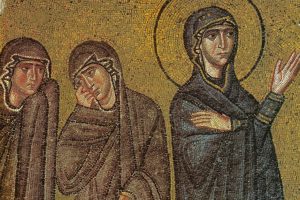
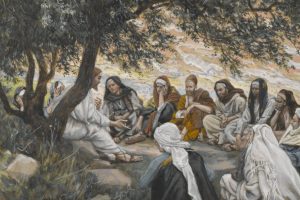
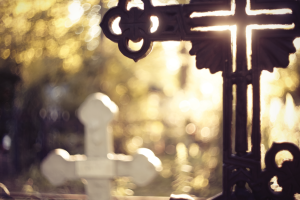




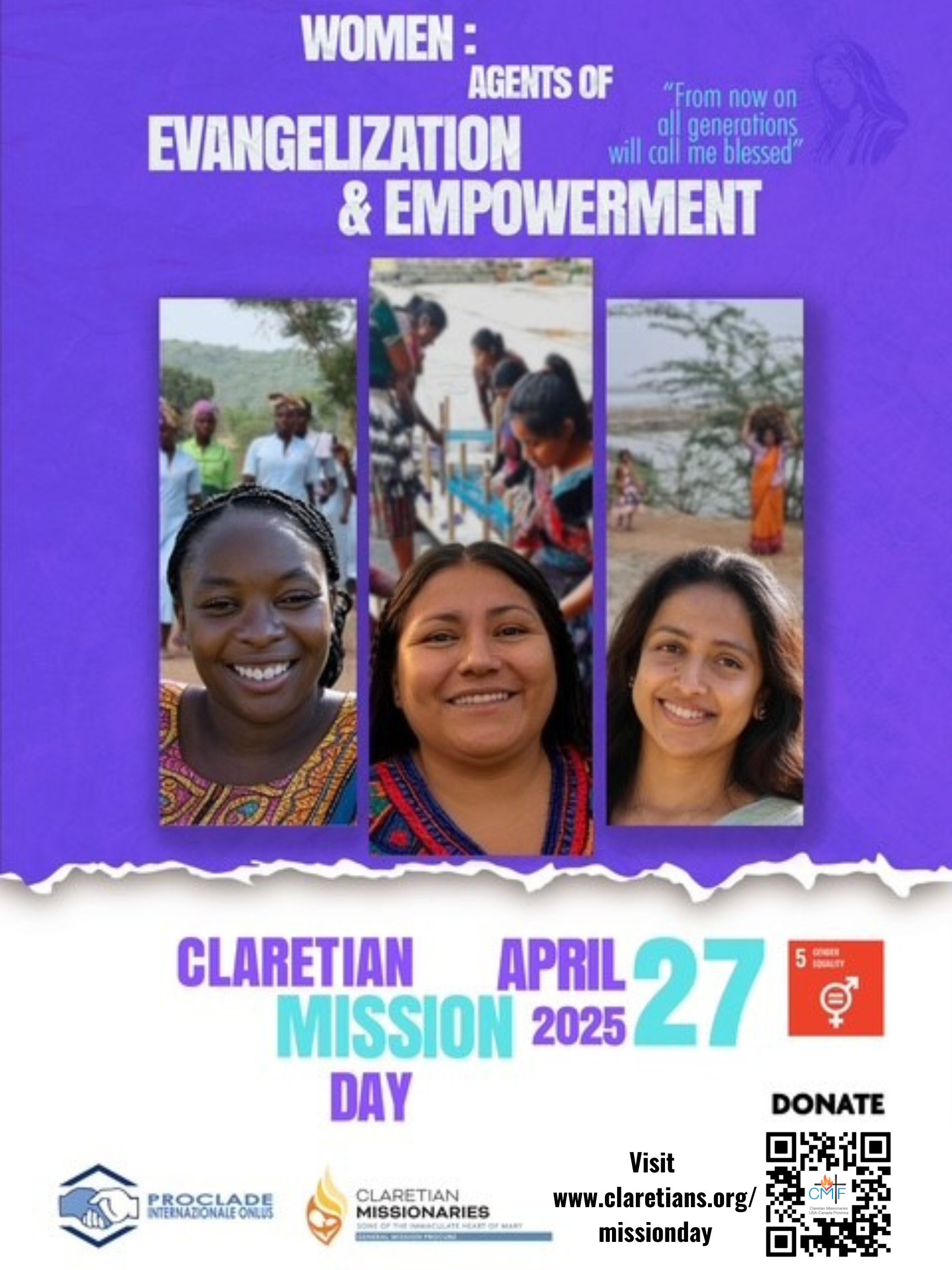
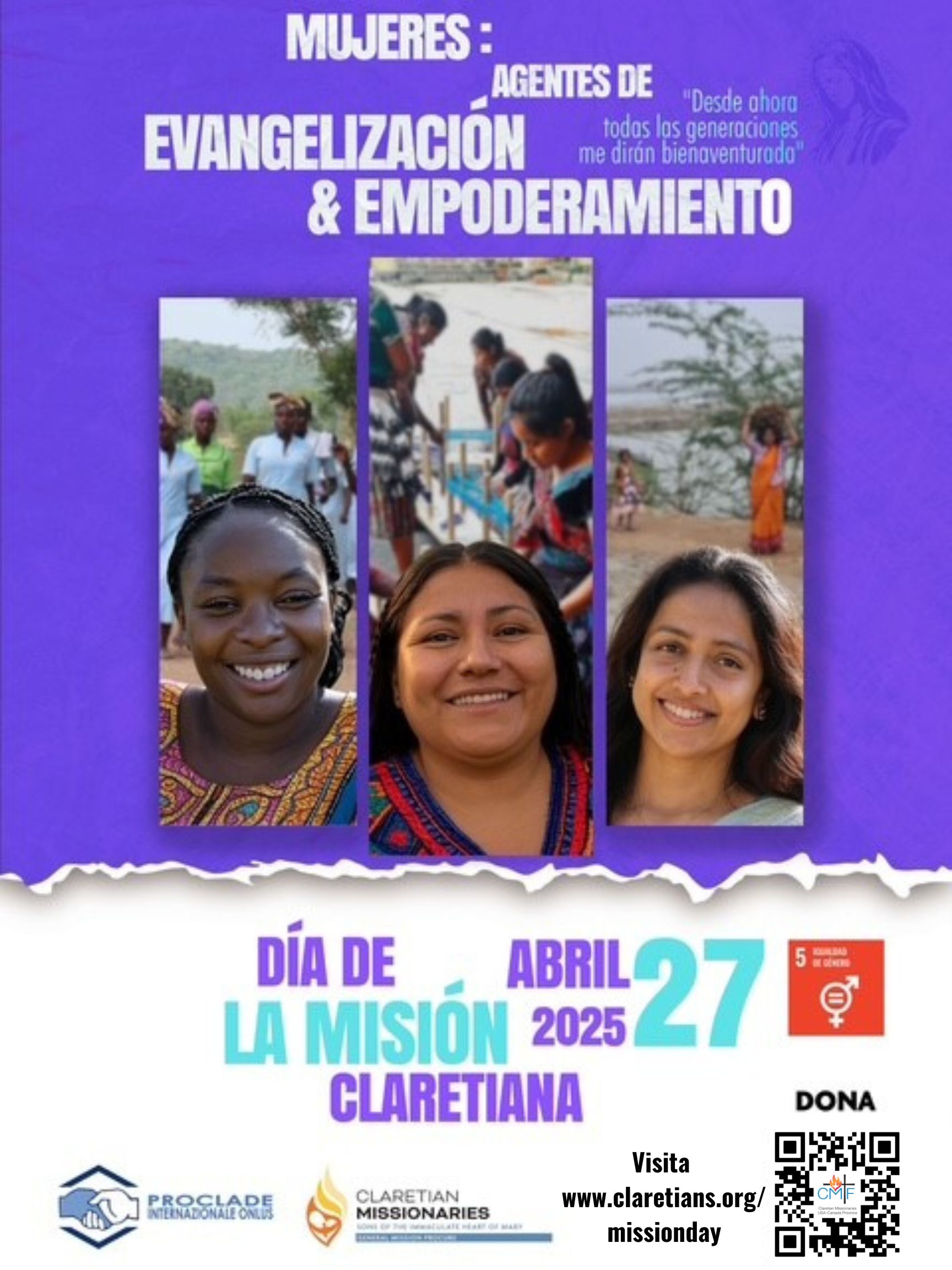
Add comment